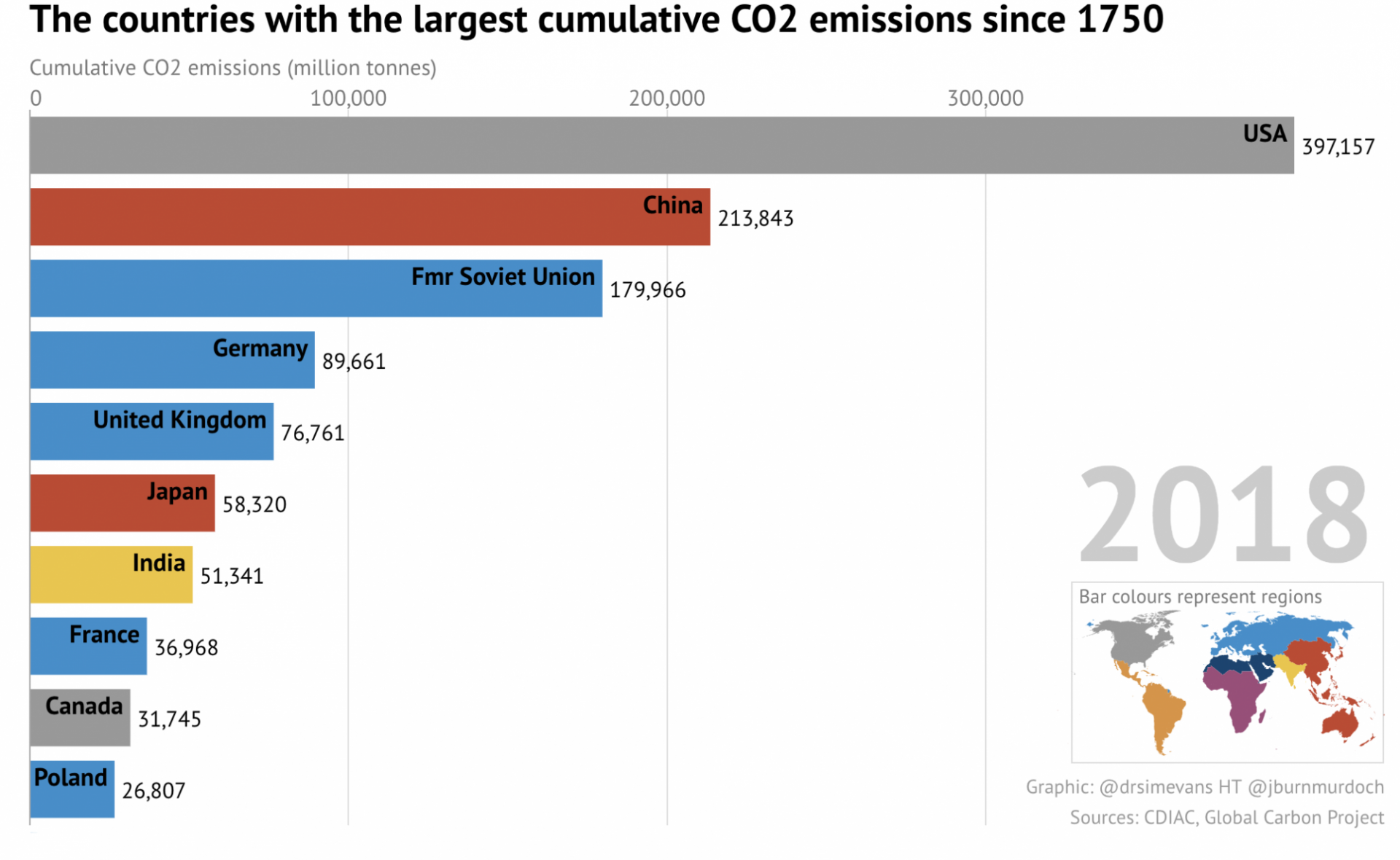Why We Need to Confront Climate Change’s Colonial Legacy
C+S Students are blogging about topics that interest them for Applications in Climate and Society, a core spring course.

There are many lenses you can use to look at climate change, but one of the most important for understanding how to deal with it is colonialism.
Far from being an artifact of the Age of Discovery, colonialism underpins our global economic system, one predicated on overconsumption and disregard for planetary boundaries. This colonial legacy allowed the U.S. and other developed nations to accumulate wealth, influence, and a massive debt of carbon emissions. Yet these wealthy and powerful countries now have a chance to address the damage done by acknowledging colonialism’s legacy and acting on climate change.
The onus to address climate change should be on those countries which brought it about. Data from CDIAC’s Global Carbon project show that the U.S. is responsible for the largest amount of cumulative carbon dioxide emissions since 1750. At nearly 400 gigatonnes, that’s double the total of China, the next largest cumulative emitter. Of the top ten emitters, seven are colonial powers with a present-day population of 760 million. That’s a fraction of the 2.7 billion that call China and India—the two developing countries on the list—home. Thus, although China and India have high annual emissions, their per capita emissions are three to seven times smaller than the U.S.
Further, the wealth and influence amassed over centuries of colonial rule has allowed the U.S. to essentially export emissions through foreign manufacturing of goods. This is known as carbon leakage and it enables the preservation of domestic natural environments at the expense of foreign countries.
As the highest cumulative emitter of carbon and one of the highest per capita emitters, the U.S. has a moral obligation to help the rest of the world adapt to and mitigate climate change. Climate reparation is one avenue. Direct reparations would essentially require wealthy nations to admit their role in causing climate change and accept blame. But it remains unpopular due to its complex and nebulous nature. The U.S. and other nations are also unwilling to accept this type of blame, suggesting a fragility which is absent when perpetrating global existential threats, but very present when admitting fault.
The Green Climate Fund could be a more politically-acceptable mechanism for climate reparations. The United Nations Framework Convention on Climate Change created the fund to support climate change adaptation and mitigation activities in developing countries. Developed countries are able to spin contributions as generous donations, instead of moral obligations. The U.S. has contributed $1 billion to the fund, which is only a third of what it originally pledged and a mere one percent of the $100 billion that developed countries agreed to assemble by 2020. The Trump administration has canceled any future payments to the fund and, thus, denied the U.S.’s role in climate change and responsibility to address it. This is unacceptable, but also sadly unsurprising given the administration’s total denial of climate change.
Honoring pledges to the Green Climate Fund and meeting the $100 billion goals is the very least developed countries can do. Refusing to do so is an egregious denial of responsibility and the colonial legacy’s lasting effects on the people in developing nations. The U.S. and other developed countries have a social, economic, and environmental debt to pay to the rest of the world.
